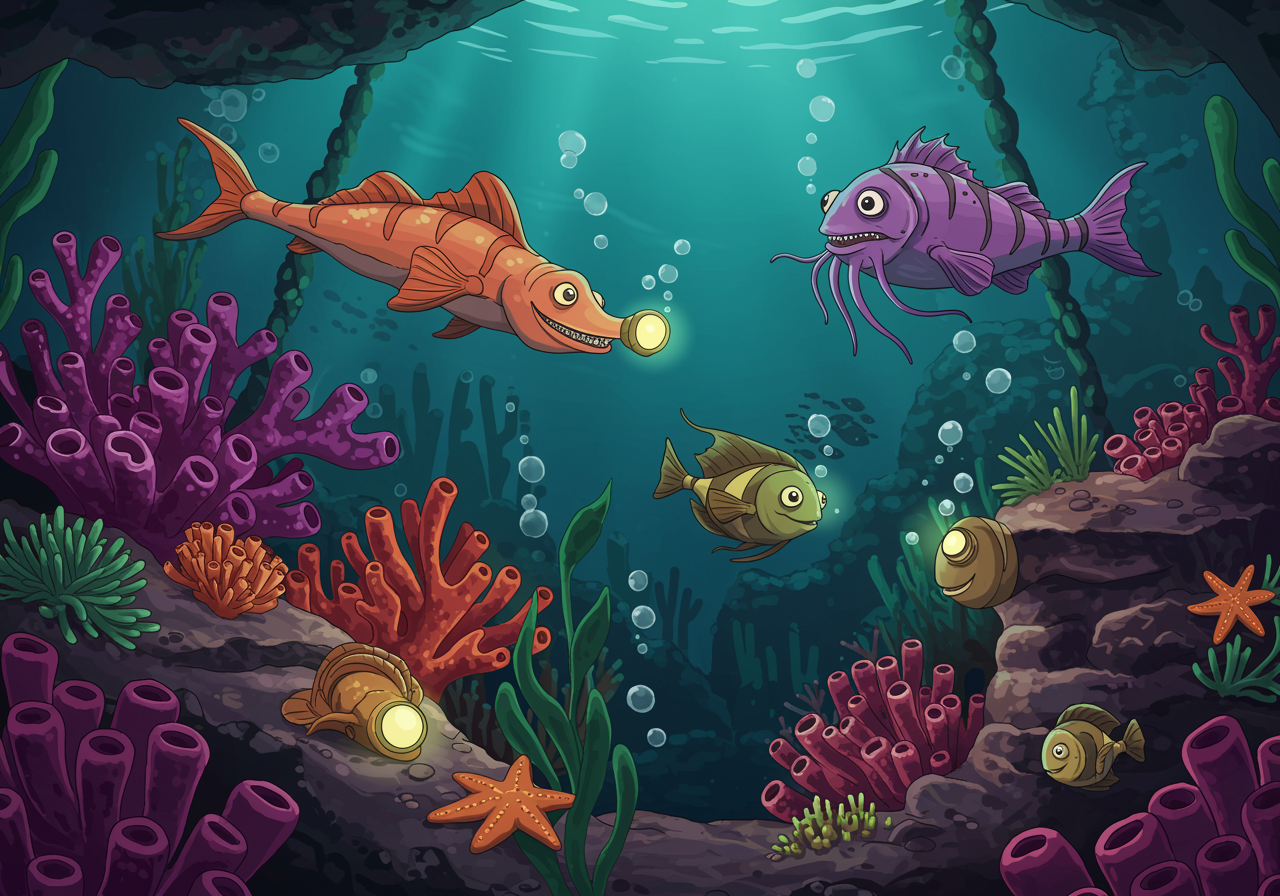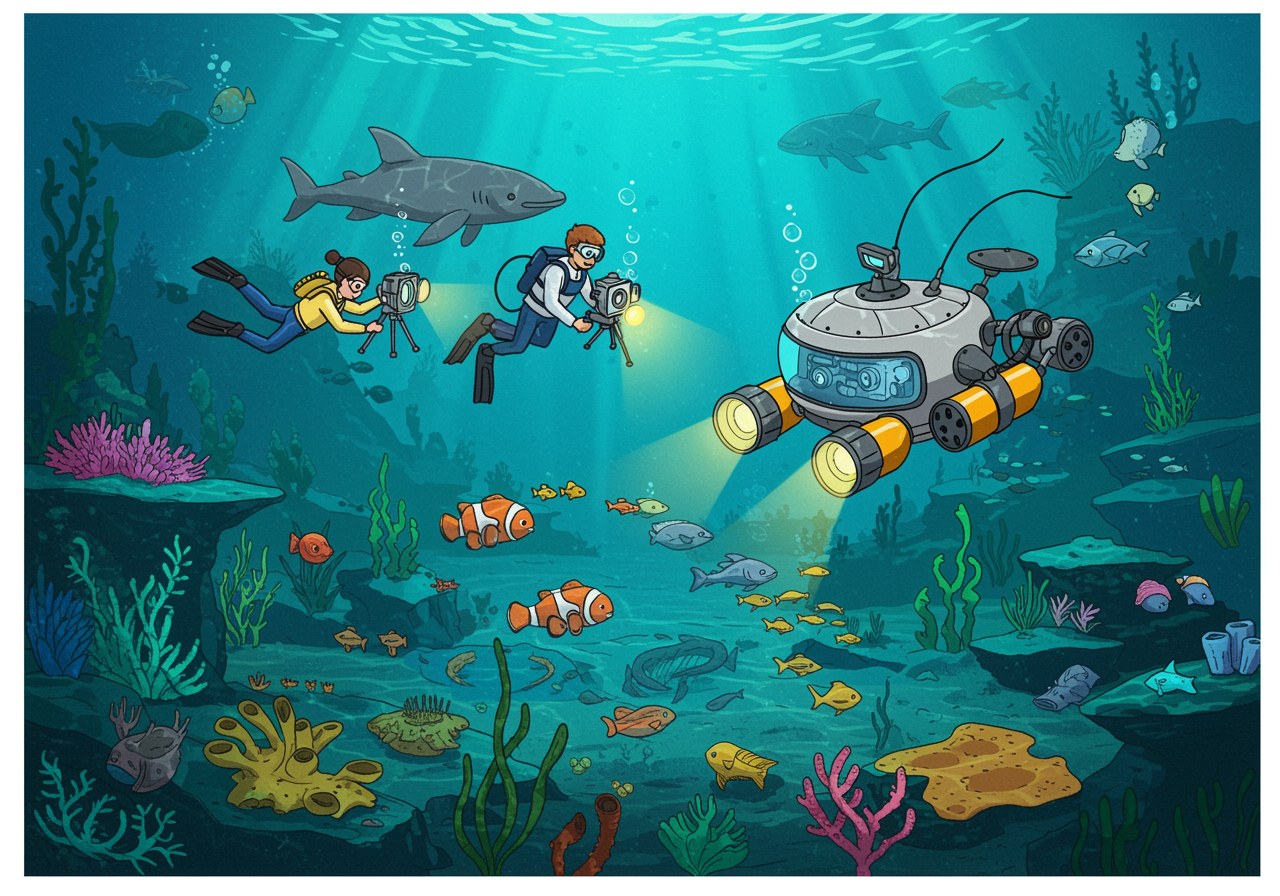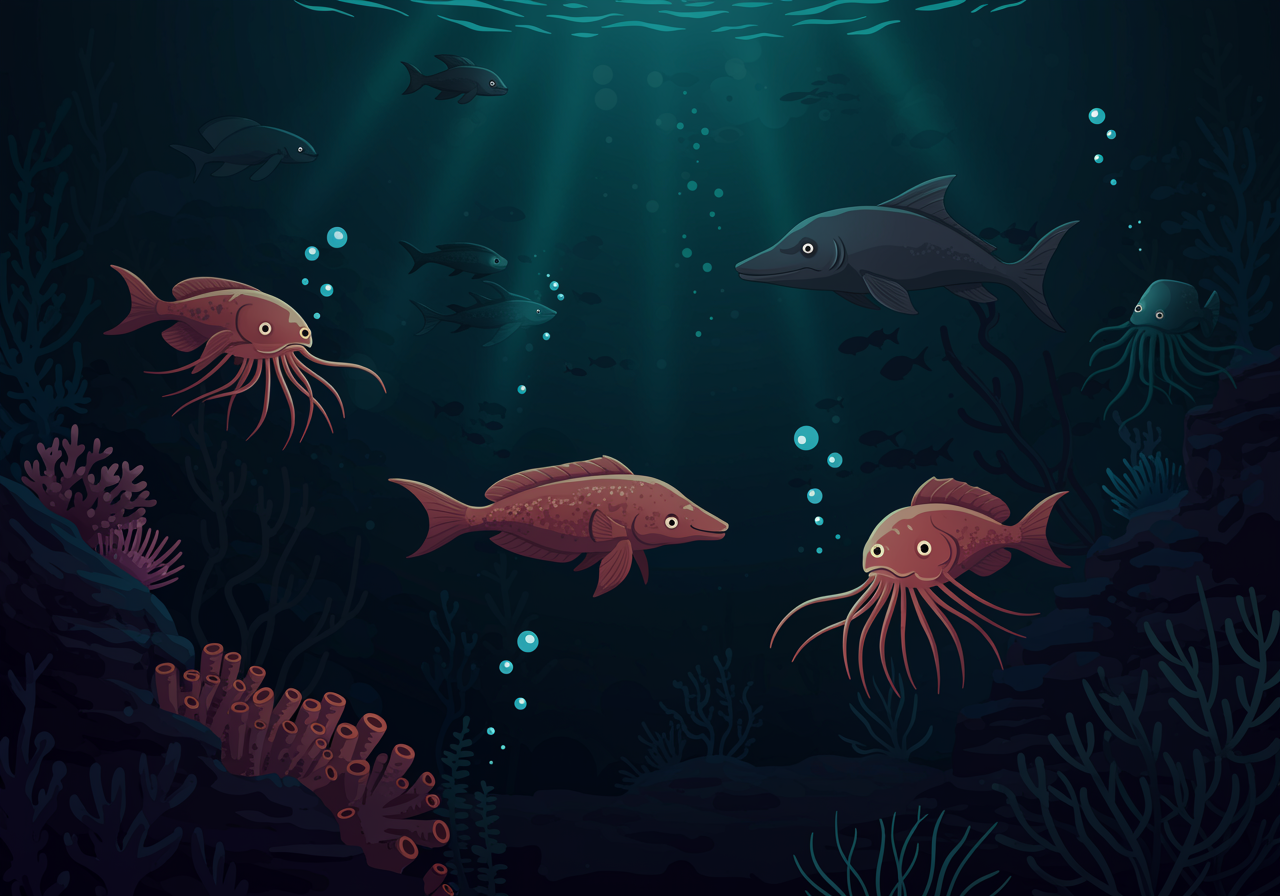Ocean’s Secret Neighborhoods: Why We Keep Finding New Sea Creatures

Every deep dive reveals hidden worlds we never knew existed right here on Earth!
Dive into the ultimate treasure hunt happening in our oceans, where scientists discover thousands of new species every year and unlock secrets about our amazing planet.
Overview
Imagine if you lived in a giant mansion but had only explored the front porch – that's exactly where we are with Earth's oceans! We've barely scratched the surface of what's down there, and every time scientists take a deep dive, they find creatures that look like they're from another planet. These discoveries aren't just cool – they're telling us incredible stories about how life adapts, survives, and thrives in ways we never imagined. When your child asks about these underwater aliens, you're opening a door to conversations about exploration, environmental protection, and the amazing fact that our own planet still holds countless mysteries.

Understand in 30 Seconds
Get up to speed quickly
- We've Only Seen 5% of Our Oceans: Scientists have explored less ocean than we have of Mars! Most of our planet's water world remains a complete mystery.
- Thousands of New Species Found Every Year: From glowing jellyfish to fish with transparent heads, researchers discover about 2,000 new ocean species annually.
- The Ocean Has Different 'Neighborhoods': Just like cities have different areas, oceans have zones from shallow reefs to deep trenches, each with unique residents.
- Technology Opens New Doors: Better submarines, underwater cameras, and diving robots help us reach places humans have never been before.
Real Life Scenario
Situations you can relate to
Think about your neighborhood – you probably know most of the houses on your street, right? But what if your neighborhood was 99% unexplored, and every time you walked down a new block, you discovered houses with completely different architecture and people who looked nothing like anyone you'd ever seen? That's exactly what's happening in our oceans! Scientists are like neighborhood explorers, but instead of finding new houses, they're finding fish that glow in the dark, creatures that look like aliens, and entire communities living around underwater volcanoes. Each discovery is like finding a secret room in your house that you never knew existed. What would you do if you found a hidden room in your home? What do you think might be living in the deepest parts of the ocean that we haven't found yet?

Role Play
Spark a conversation with “what if” scenarios
What if you were a deep-sea explorer in a submarine going deeper than anyone has gone before?
- Role play: Turn off the lights and use flashlights to 'explore' your living room. Describe the weird 'creatures' (furniture) you discover and make up stories about how they survive in this dark world.
What if you discovered a new species and got to name it?
- Role play: Draw or describe a made-up ocean creature together. What would you name it? What special abilities would it have? How would it survive in the deep ocean?
What if you were a marine biologist trying to convince people to protect the ocean?
- Role play: Take turns being the scientist and the audience. The scientist explains why their new discovery is important while the audience asks curious questions.
FAQs
Frequently asked questions people want to know
Why haven't we explored the whole ocean yet?
The ocean is huge, deep, and dark! It's harder to explore than space because water is heavy and crushes submarines. Plus, it's expensive and takes special equipment.
How do scientists find new species?
They use underwater robots, special nets, deep-sea cameras, and sometimes even study fish that wash up on beaches. DNA testing also helps them figure out if something is truly new.
Are these new species dangerous?
Most new ocean species are tiny or live so deep that humans rarely encounter them. Many are actually quite small, like new types of shrimp or worms.
Examples in the Wild
See how this works day to day
- In 2023, scientists discovered over 30 new species in the deep Pacific, including a 'Barbie pink' fish and a walking sea pig. (Ocean Exploration Trust)
- The dumbo octopus, found in 2022, has ear-like fins and lives deeper than Mount Everest is tall. (NOAA Ocean Exploration)
- Scientists recently found entire ecosystems living around underwater volcanoes, with creatures that eat chemicals instead of sunlight. (Woods Hole Oceanographic Institution)
- In 2024, researchers discovered a new species of whale that had been hiding in plain sight off the coast of Japan. (Marine Mammal Science Journal)
In Summary
What you should know before you start
- Our oceans are like a giant puzzle with 95% of the pieces still missing
- New species discoveries teach us about evolution, adaptation, and biodiversity
- Each find helps scientists understand how life survives in extreme conditions
- These discoveries remind us that Earth still holds incredible mysteries waiting to be solved
Pro-tip for Parents
You got this!
If your child seems overwhelmed by how much we don't know, flip it into excitement! Frame it as the ultimate treasure hunt where every discovery is a prize. When they ask 'How is that possible?' respond with 'Isn't it amazing that we live on a planet that can still surprise us?' This turns uncertainty into wonder and shows them that not knowing everything is actually pretty cool.

Keep an Eye Out For
Find these examples in everyday life
- News stories about new ocean discoveries or deep-sea expeditions
- Nature documentaries featuring underwater exploration
- Local aquarium visits where you can discuss marine biodiversity
Explore Beyond
Look up these related research topics
- How do animals adapt to live in extreme environments?
- What other unexplored places exist on Earth?
- How do scientists use technology to make new discoveries?